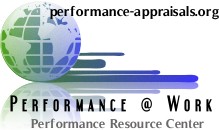Does Rank and Yank Work To Improve Company Productivity?
This isn't actually the right question. The real question is: Will rank and yank work to improve YOUR company productivity?
The reason you need to ask this is that rank and yank CAN work in some very narrow situations, when some very specific variables "fit". Here are some of the factors that will influence whether rank and yank will work to improve your company's productivity.
- Current level of employee competencies and expertise (if you are average and above, it won't work well)
- Quality of prospective replacement workers in the free labor pool that you can hire (if replacement quality is low, or talent is scarce, it doesn't work well).
- Complexity of the work and skills and abilities required to the jobs in your company (the less skills and less complex the more likely rank and yank can work).
- Ability to objectively determine the value of employees to determine whether they should be retained or yanked. (in almost all cases it's not possible to objectively determine employee value without huge errors).
- The degree to which your company values and depends on social and corporate interactions for success (yanking disrupts these)
- The number of years you apply rank and yank (it doesn't work well over time).
- The quality of your Human Resources Department and the quality of your hiring decisions.
Here's a sobering quote (access the article here)
One of the leading practitioners of forced ranking was Enron Corporation, the Texas energy and trading giant that collapsed in late 2001 under a tidal wave of debt and scandal. It is sobering to reflect that commentators had, in the months preceding its demise, held up the once highly profitable company as proof that rank and yank was the way of the future for all performance appraisals. It was said that rank and yank had produced in Enron "a hotbed of overachievers" - bold rhetoric which now seems a little embarrassing, to say the least.
